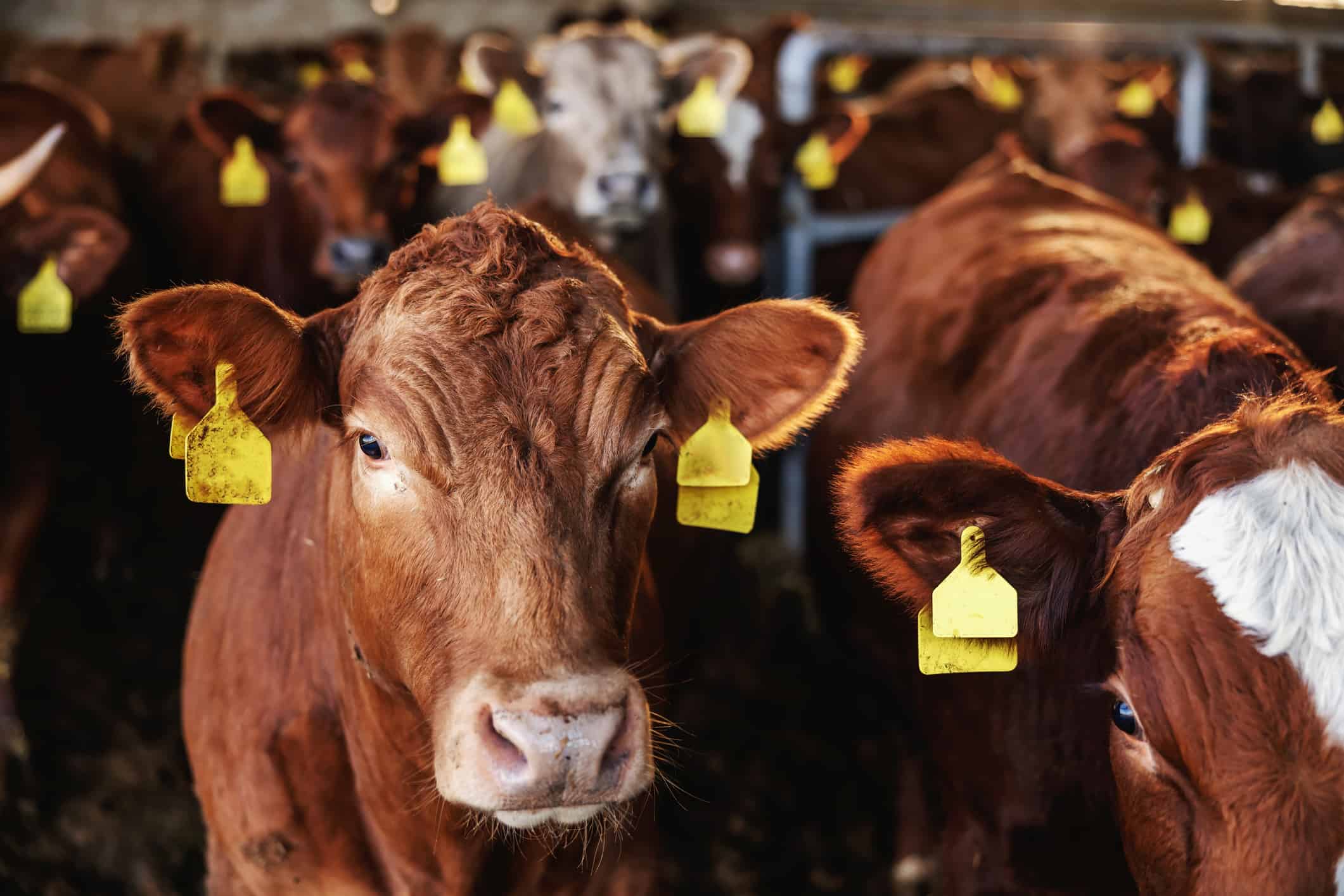
Over recent centuries, humans have made significant progress in our moral views. One by one, the different, but interrelated, systems of oppression that perpetuate the discrimination of minorities have come into question. Gradually, we have expanded our moral sphere. However, most people today would still not consider the moral status of most nonhuman animals to be significant enough to discourage us from eating them. Perhaps we should be wondering: Are nonhuman animals the next oppressed group to be ascribed moral worth—at least enough to consider their lives more valuable than the utility or pleasure we get from eating them?
The view that only humans have moral value is an anthropocentric view. Anthropocentrism is the idea that humans are the most, or only, important beings in the universe; anthropocentrism interprets reality through a solely human lens. An anthropocentric ethical view posits that human beings are the only beings who have sufficient moral status to warrant rights or protections. This type of view has been the prevailing one in Western society for a long time. However, some recent ethical philosophers, such as Tom Regan and Peter Singer, have started calling into question the idea that humans are the only beings who deserve such moral status. They acknowledge that humans are different from nonhuman animals in many ways, but argue that those differences are not relevant in determining whether or not an animal has moral worth. Rather, what is important in this regard are the similarities between humans and nonhuman animals. These similarities, such as the capacity to feel pleasure and pain, are what are relevant in determining moral worth, according to these philosophers. As such, these philosophers argue that humans’ differences from nonhuman animals do not justify human mistreatment of nonhuman animals because such differences do not take away from nonhuman animals’ moral value, and, of course, any being with moral value should not be caused unjust harm. These philosophers conclude that humans ought to expand their sphere of compassion to include some, or all, nonhuman animals.
The term speciesism has recently become more widely used among ethicists in favor of animal rights and welfare to describe the prejudice against other beings based on their species. Most, if not all, humans display some level of speciesism because we prioritize humans over nonhumans in our moral considerations. According to some recent ethical philosophers, speciesism is a form of prejudice on par with racism because both attempt to justify discrimination based on characteristics that are irrelevant to determining moral worth. Furthermore, it is said that there is no solid logic to favor the interests of beings belonging to one’s own species over beings belonging to other species. However, one need not accept the claim that speciesism is discriminatory to believe that humans’ treatment of nonhuman animals is unjust. One may still prioritize the interests of humans over nonhuman animals while also recognizing that our use of animals is morally objectionable.
One of the most distinguished modern philosophers who argues in defense of animal moral consideration is Tom Regan, who contends from a rights-based philosophical view that nonhuman animals deserve to experience life without unnecessary suffering inflicted by humans. In this view, the many similarities between humans and non-human animals, rather than the relatively few differences, matter; animals deserve basic rights, just as humans deserve rights. According to Regan, an action is wrong if it treats a nonhuman animal as a mere means to an end, rather than an end in itself, because this violates the animal’s right to be valued for its inherent worth. If we accept Regan’s view, we must accept that our use of animals in the animal agriculture industry is morally wrong because it uses animals only as means to an end.
A less absolutist position in favor of animal moral consideration is offered by utilitarian philosopher Peter Singer. Singer argues for animal moral consideration from a utilitarian perspective, which holds that the amount of pleasure produced is the only measure of the moral quality of any action. Singer believes that nonhuman animals do not deserve rights in the way that humans do, but they are still morally valuable because they have interests, and these interests are deserving of consideration. Like Regan, Singer believes that the similarities between humans and nonhuman animals are more important than our differences; he recognizes that nonhuman animals do not have all of the same capabilities that humans have, but that nonhuman animals are still able to feel pleasure and pain like we do, and they have an interest in preferring pleasure over pain. Thus, they deserve to be free from unnecessary pain inflicted by humans.
As the field of ethics continues to evolve, it is likely that philosophers will continue extending the moral sphere to nonhuman animals. Many if not all of the most influential ancient philosophers, such as Socrates and Aristotle, held views which most of us today would consider extremely discriminatory, and yet today almost everyone condemns the idea that some humans are superior to others because of their race or sex. Is it outlandish to think that it may one day be commonly accepted that nonhuman animals are worth more than the food they provide us with?
Shae Stokes is a college fellow for FFAC, currently studying philosophy, sociology, and animals & society.